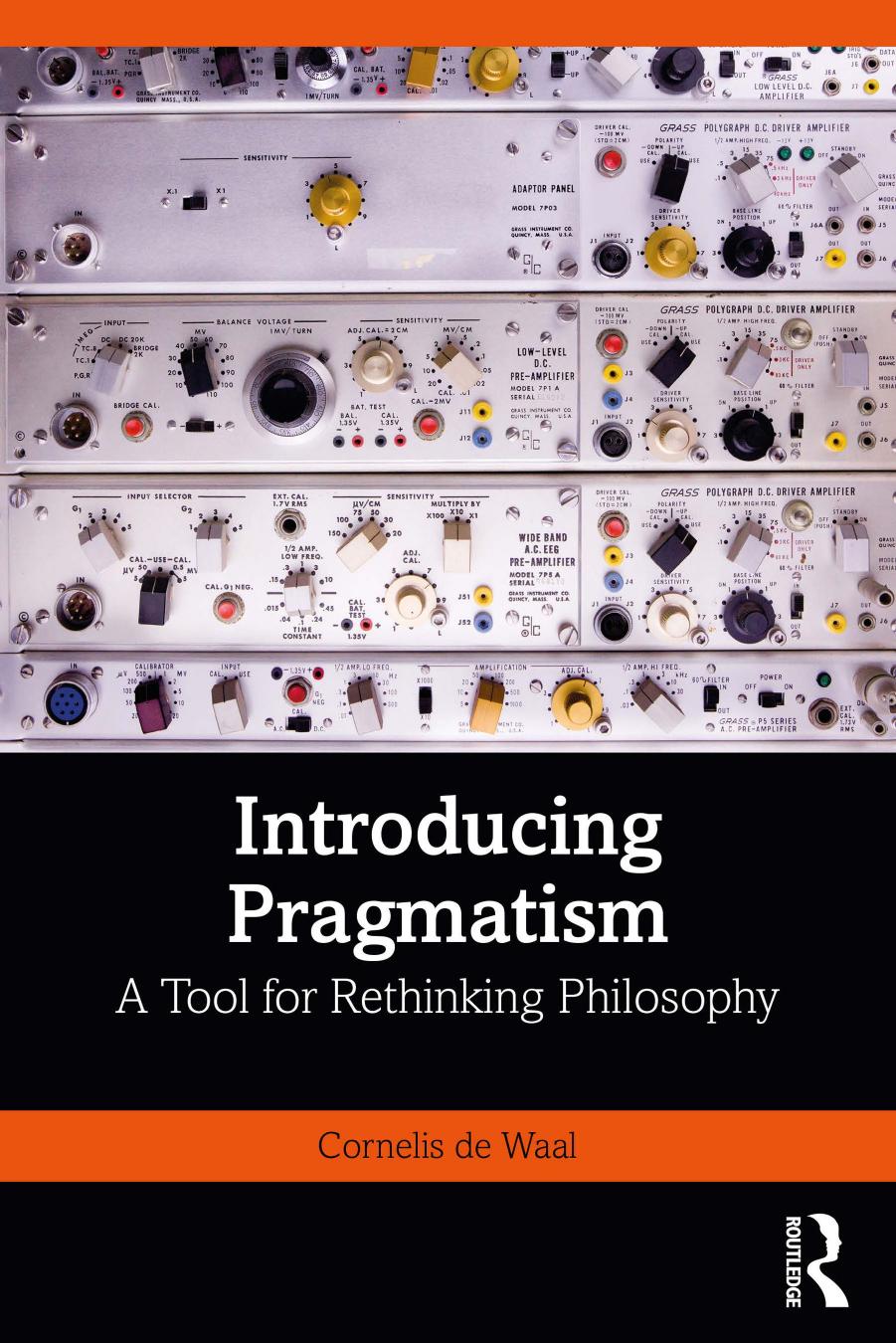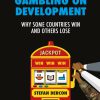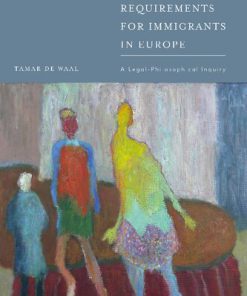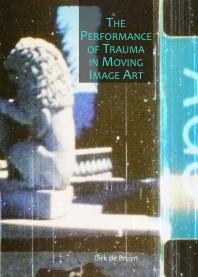Introducing Pragmatism 1st Edition by Cornelis de Waal ISBN 1000428427 9781000428421
$50.00 Original price was: $50.00.$25.00Current price is: $25.00.
Introducing Pragmatism 1st Edition by Cornelis de Waal – Ebook PDF Instant Download/Delivery: 1000428427, 9781000428421
Full download Introducing Pragmatism 1st Edition after payment
Product details:
ISBN 10: 1000428427
ISBN 13: 9781000428421
Author: Cornelis de Waal
Introducing Pragmatism 1st Edition:
This unique introduction fully engages and clearly explains pragmatism, an approach to knowledge and philosophy that rejects outmoded conceptions of objectivity while avoiding relativism and subjectivism. It follows pragmatism’s focus on the process of inquiry rather than on abstract justifications meant to appease the skeptic. According to pragmatists, getting to know the world is a creative human enterprise, wherein we fashion our concepts in terms of how they affect us practically, including in future inquiry. This book fully illuminates that enterprise and the resulting radical rethinking of basic philosophical conceptions like truth, reality, and reason.
Author Cornelis de Waal helps the reader recognize, understand, and assess classical and current pragmatist contributions―from Charles S. Peirce to Cornel West―evaluate existing views from a pragmatist angle, formulate pragmatist critiques, and develop a pragmatist viewpoint on a specific issue.
The book discusses:
- Classical pragmatists, including Peirce, James, Dewey, and Addams;
- Contemporary figures, including Rorty, Putnam, Haack, and West;
- Connections with other twentieth-century approaches, including phenomenology, critical theory, and logical positivism;
- Peirce’s pragmatic maxim and its relation to James’s Will to Believe;
- Applications to philosophy of law, feminism, and issues of race and racism.
Introducing Pragmatism 1st Edition Table of contents:
1. Introduction
2. Peirce and the Principle of Pragmatism
- 2.1. The Limits of Thought
- 2.2. The Purpose of Thought
- 2.3. The Fixation of Belief
- 2.4. The Fixation of Meaning
- 2.5. Applications of the Pragmatic Maxim
- 2.6. The Pragmatic Conception of Truth
3. William James: Pragmatism and the Will to Believe
- 3.1. Birth of the Term “Pragmatism”
- 3.2. The Will to Believe
- 3.3. The Principle of Pragmatism
- 3.4. Applications of the Principle
- 3.5. Rationalism, Empiricism, Pragmatism
- 3.6. Truth as Agreement With Reality
- 3.7. Taking Truth Further
4. The Pragmatic Humanism of F.C.S. Schiller
- 4.1. Broadening the Will to Believe
- 4.2. Pragmatism
- 4.3. Humanism
- 4.4. The Making of Truth
- 4.5. Three Pragmatic Views on Truth
- 4.6. The Making of Reality
5. European Reception: France and Italy
- 5.1. French Philosophy of Action
- 5.2. The Leonardo Movement
- 5.3. The Magical Pragmatism of Giovanni Papini
- 5.4. Giovanni Vailati’s Logical Pragmatism
- 5.5. The Prezzolini–Calderoni Debate
6. Peirce Revisited: The Normative Turn
- 6.1. Peirce’s Later Years
- 6.2. Response to James’s Will to Believe
- 6.3. The Harvard Lectures on Pragmatism
- 6.4. In Search of a Proof
- 6.5. Phenomenology and the Normative Sciences
- 6.6. Pragmatism Versus Pragmaticism
- 6.7. Logic and Semiotics
- 6.8. Pragmatism as the Logic of Abduction
7. Josiah Royce and George Herbert Mead
- 7.1. Pure Pragmatism and the Absolute Knower
- 7.2. Toward a Community of Interpretation
- 7.3. The Social Pragmatism of George Herbert Mead
- 7.4. The Philosophy of the Act
- 7.5. The Social Nature of the Act and the Emergence of the Self
- 7.6. Mind, Language, and Pragmatism
- 7.7. Perspective Realism
8. Pragmatism and the Problems of Life: Dewey, Addams, and Bourne
- 8.1. Dewey’s Experimental Logic
- 8.2. A Theory of Knowledge
- 8.3. Whether All Judgments Are Practical
- 8.4. Pragmatism and the Problems of Life
- 8.5. Truth and Warranted Assertibility
- 8.6. Jane Addams: A Pragmatist in Action
- 8.7. Randolph Bourne: Pragmatism and Romantic Anarchy
9. Conceptual Pragmatism: From Lewis to Davidson
- 9.1. The Given, the A Priori, and Interpretation
- 9.2. Pragmatism, Truth, and Valuation
- 9.3. Logical Positivism
- 9.4. Pragmatism and Pragmatics
- 9.5. Verificationism
- 9.6. Quine’s More Thorough Pragmatism
- 9.7. On Worlds and World Making
- 9.8. Davidson and a Third Dogma
10. The European Reception Revisited
- 10.1. From Russell, to Ramsey, to Wittgenstein
- 10.2. The Pragmatism of Frank Ramsey
- 10.3. Ludwig Wittgenstein: Meaning as Use
- 10.4. Pragmatism and Phenomenology
- 10.5. Pragmatism and Philosophical Anthropology
- 10.6. Critical Theory Rejects Pragmatism
- 10.7. Jürgen Habermas: Critical Theory Turns to Pragmatism
11. The Neopragmatism of Richard Rorty
- 11.1. The Idol of the Mirror
- 11.2. The Impact of Sellars and Quine
- 11.3. From Correspondence to Conversation
- 11.4. Against Truth
- 11.5. Solidarity, Ethnocentricity, and Irony
12. Hilary Putnam: Philosophy With a Human Face
- 12.1. The Collapse of the Fact–Value Distinction
- 12.2. Whether Our Norms Are All Subjective
- 12.3. Pragmatism and Internal Realism
- 12.4. Natural Realism
13. Susan Haack: Reclaiming Pragmatism
- 13.1. The Empirical Justification of Beliefs
- 13.2. The Analogy of the Crossword Puzzle
- 13.3. Standards of Inquiry
- 13.4. Justification and Truth
- 13.5. Against Vulgar Pragmatism
14. Legal Pragmatism
- 14.1. Green’s Pragmatic Reading of Causation
- 14.2. Oliver Wendell Holmes on Legal Liability
- 14.3. Legal Pragmatism in the Twentieth Century
- 14.4. Dewey on Judicial Practice
- 14.5. The Legal Pragmatism of Richard Posner
- 14.6. Haack on Evidence and Inquiry in the Law
15. Prophetic Pragmatism and Feminist Inspirations
- 15.1. Feminist Pragmatism
- 15.2. The Social Self and the Male–Female Dichotomy
- 15.3. Alain Locke on the New Negro
- 15.4. Cornel West’s Prophetic Pragmatism
16. Pragmatism and the End(s) of Philosophy
People also search for Introducing Pragmatism 1st Edition:
why teach pragmatism
what is the aim of pragmatism
examples of pragmatism in real life
pragmatism in practice
examples of pragmatism in politics
Tags:
Cornelis de Waal,Introducing,Pragmatism
You may also like…
Business & Economics - Industries
Economics and the Sports Industry: Theory and Applications 1st Edition Corey H. Van De Waal
Uncategorized
History - European History
Great Catastrophe Armenians and Turks in the Shadow of Genocide De Waal Thomas
Uncategorized
Business & Economics - Management & Leadership
Uncategorized
Uncategorized
Contemporary Feminist Pragmatism 1st Edition Maurice Hamington Celia Bardwell Jones Eds












